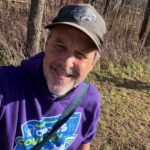BY FRANK T. SIKORA
Frank is one of our volunteer submission readers. From time to time we post work from our team members. Copyright is held by the author.
EACH TIME I look at my reflection, I’m disgusted. I’m hideous. A monstrosity, and yet, I’m amazed. I’m alive. I’m breathing. I’m conscious, and given the alternative, I shan’t complain. I got what I paid for: I’m a turtle, technically — Chelonoidis niger. Commonly known as a giant tortoise and is found in the Galápagos Islands. Compared to most of my brethren, I’m quite hefty, probably weighing 300 or more kilograms.
I am anywhere from 20 to 150 years old. Given that I dropped into this creature’s consciousness a mere 15 sunsets ago, I’m not sure. I’m guessing I’m 40ish. Young by tortoise standards. Alive. Alive! No longer hooked up to tubes and IVs, listening to some preacher mumbling metaphysical nonsense as I expire.
Before signing up with The New You, Inc., I knew little about these creatures. I would have preferred occupying a human consciousness, any human, even an Egyptian slave or North American Amazon worker, or some other extinct or nonviable species, but my savings were limited. Well, abysmal.
I spend my days grazing in the grass, eating bugs and plants. Expelling gas and a weird brown liquid. I hope I’m not sick. When not grazing, I lounge on the rocks where I enjoy an ocean view. Sometimes, Lilly joins me. That’s my name for her, another tortoise. I don’t think we actually have names. We just know each other by sight and smell. She’s sweet. She doesn’t try to steal my food. When she looks at me, she doesn’t see a grotesque, now extinct creature incapable of speed or wit. She thinks I’m handsome. I like that. Never been much of a looker.
I want to write her a poem, or a sonnet. But, well, I lack the physical tools. Neither a thumb nor a finger to be found. Only claws.
I’m a much better poet than before, when I wrote tediously dreadful compositions, consumed with images of death and existential dread. Maybe that was the reason I failed at love — being relentlessly grim is not a romantic virtue. Now, my compositions focus on romantic love — eros. In my mind, my work sings. It soars.
Lilly saddles up close, stretching her neck, flicking her tongue, clicking and grunting and hissing. I feel her heat. Soon, I suspect I must mount her. Will my Chelonoidis instincts finally take over? Right now, I don’t feel particularly sexual, just a tingle.
I’m concerned that as I adjust to my new existence, my memories of life before and my intellect will fade. New You, Inc. promised that I would retain the original me. If their technology fails, what recourse do I have? Pen a letter. An email? A text? Hardly.
Lilly spits in my face, grunts some more, and screeches. My heart pumps harder, probably rocketing up 15 beats per minute from its normal six or seven.
When I joined New You, Inc. I could have chosen an eagle. A dog, even a leopard, but their lifespans rarely reached more than 12 years. I wanted a long life. I wanted a buffer before eternity — the endless absence of consciousness.
Lilly presses on. Grunting, vomit pours forth. She’s earnest, but disgusting.
A new idea occurs: Maybe Lilly is more than another tortoise in heat. Maybe she was a client of The New You: once a lonely widow looking for one more life of love.
Perhaps she is writing me poetry. Wouldn’t that be something?
Staring side eyes at her, I notice the soft curve of her neck. The attentive eyes. The lovely wrinkles.
She’s not unattractive.
Worthy of a sonnet.
Even love.
***

Frank T. Sikora writes speculative fiction. A few of his short pieces have won awards. Most don’t, but he keeps trying. His work has been published in Canada, Australia, and the U.S. When he is not writing, he works as a substitute teacher, cross country and track coach, and Uber driver. Yes, he is retired. For more stories featuring talented writers from the U.S. and Canada, check out his blog: 600 Miles to Leadville.
